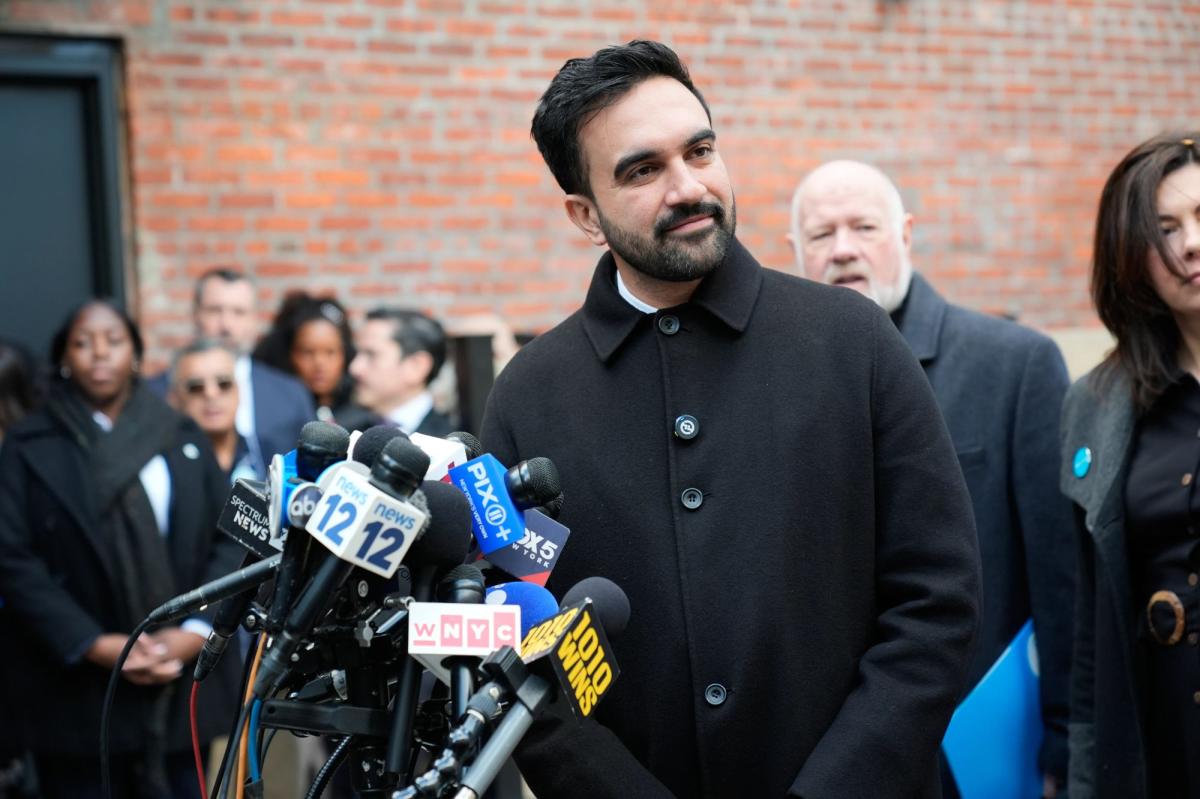When Zohran Mamdani and his supporters talk of taxing the rich, they usually mean it on a personal level — referring to his proposal to raise income taxes on New York City residents with annual incomes over $1 million.
He estimated this would raise $4 billion a year to help fund his expansive agenda, including universal childcare.
Less attention was paid to the larger of Mamdani’s tax bids — a proposal to raise $5 billion by elevating New York’s top tax rate on corporations from 7.25% to match New Jersey’s highest-in-the nation level of 11.5%.
“If it works for our regional neighbor, why can’t it work for us?” Mamdani said in a June interview.
After all, as his campaign issue guide put it: “New York’s corporate tax rate now lags behind 15 other states and Washington, DC.”
This was highly misleading, however.
In New York City, Long Island and five northern suburban counties — where the bulk of the state tax base is concentrated — the corporate tax rate is compounded by a 30% surcharge for the Metropolitan Transportation Authority.
This raises the top rate throughout the region to 9.43%, fourth highest in the nation.
Mamdani’s proposal would take this up to 13.7%, easily topping all states.
That’s not all: In addition to the state and regional corporate tax surcharge, New York City imposes its own corporate income tax of 8.85% (or 9% on finance firms), bringing the current combined state and city rate to well over 18%.
Adding this to the mix, Mamdani’s tax hike would bring the combined New York State and City corporate tax rate to 22.5% — above the federal rate of 21%.
As economists point out, higher corporate taxes don’t dissipate into the ether — nor are they subtracted from notionally lavish CEO paychecks.
One way or another, they are absorbed by shareholders (including pension and retirement savings plans), workers, clients and customers.
While a portion of corporate taxes on multi-state firms is exported beyond New York’s borders, any new tax hike also would come on the top of this year’s $1.4 billion increase in the separate MTA-dedicated payroll tax on large employers in the city and suburbs.
To be sure, given the need for formal state approval of both tax increases, the new mayor is highly unlikely to get everything he wants — or even most of it — from Gov. Kathy Hochul and his fellow Democrats in the Legislature.
However, he’s equally unlikely to come away empty-handed.
Hochul’s mid-September endorsement of Mamdani included the disclaimer that she wasn’t “aligned with him on every issue,” taxes being the primary point of difference.
Get opinions and commentary from our columnists
Subscribe to our daily Post Opinion newsletter!
Thanks for signing up!
“I’m not raising taxes on high net-worth people right now, because we cannot have them leave the state,” she explained before the election.
The governor is hardly an anti-tax hardliner, though.
Her most recent budget included a preemptive five-year extension of the significantly higher “millionaire tax” rates signed into law by Andrew Cuomo in 2021, which were otherwise scheduled to expire in 2027.
Taunted by “tax the rich” chants at a preelection Mamdani rally, Hochul failed to make the obvious response: Thanks to a tax hike she’s perpetuated, New York City’s millionaire earners already are taxed at the highest rates in the country.
While still sounding reluctant to go along with a tax hike targeting individual income millionaires, the governor pointedly didn’t deny a Politico report last week that she and her staff had begun “quiet, back-of-the-napkin style discussions about how to increase the corporate tax rate.”
She cited uncertainty over the impact of federal budget cuts as a reason to keep options open in planning for her next budget, due in January.
Not incidentally, she faces a Democratic primary challenge on the left from Lt. Gov. Antonio Delgado.
Members of the large Democratic majorities in the state Senate and Assembly already are on record as supporting both higher corporate and personal income taxes, albeit at lower rates than Mamdani has proposed.
In an election year, they won’t want to risk primaries from the new mayor’s energized supporters.
And so, as usual in Albany, the buck will stop in the governor’s office.
E.J. McMahon is an adjunct fellow at the Manhattan Institute.
